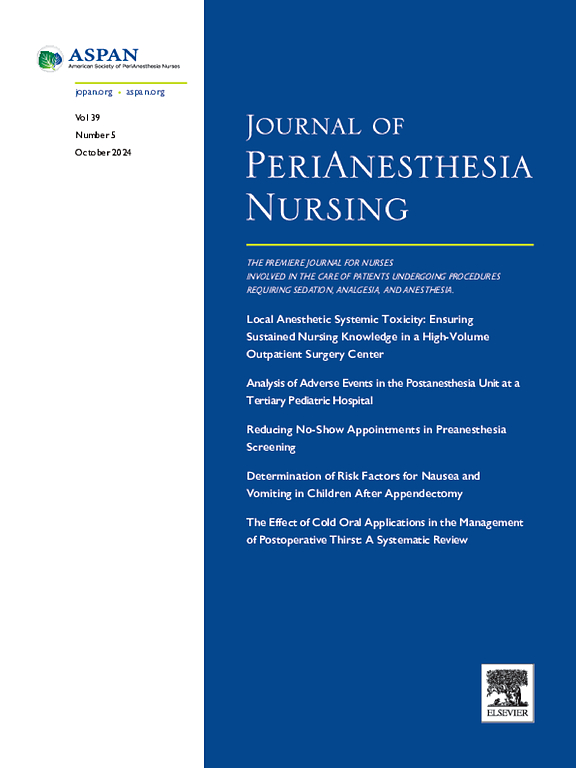The Effect of Internet Information Pollution on Surgical Fear in Patients Undergoing Surgery
IF 1.6
4区 医学
Q2 NURSING
引用次数: 0
Abstract
Purpose
This study aimed to determine the effect of internet information pollution on levels of surgical fear among patients undergoing surgery.
Design
Observational study.
Methods
This study was conducted with 407 patients scheduled for surgery in the surgical wards of a university hospital. Data were collected preoperatively using a patient information form, the Internet Information Pollution Scale, and the Surgical Fear Questionnaire.
Findings
A very weak positive correlation was found between total internet information pollution score and total surgical fear score (r = 0.184; P < .001). In regression analysis of the impact of internet information pollution on total surgical fear score, the regression model was significant (F = 13.183; P < .001), with 2.9% of the total change in surgical fear score explained by the total internet information pollution score (R2 = 0.029).
Conclusions
The results of this study suggest that the information pollution surgical patients encounter on the internet may increase their surgical fear. We recommend directing patients to reliable information sources and attempting to control unreliable data sources to prevent online information pollution and reduce patients’ surgical fear.
互联网信息污染对手术患者手术恐惧感的影响。
目的:本研究旨在确定互联网信息污染对手术患者手术恐惧水平的影响:观察研究:研究对象为一家大学医院外科病房的 407 名手术患者。术前使用患者信息表、互联网信息污染量表和手术恐惧问卷收集数据:互联网信息污染总分与手术恐惧总分之间存在极弱的正相关性(r = 0.184; P 2 = 0.029):本研究结果表明,手术患者在互联网上遇到的信息污染可能会增加他们的手术恐惧。我们建议引导患者使用可靠的信息来源,并尝试控制不可靠的数据来源,以防止网络信息污染,减少患者的手术恐惧。
本文章由计算机程序翻译,如有差异,请以英文原文为准。
求助全文
约1分钟内获得全文
求助全文
来源期刊

Journal of Perianesthesia Nursing
NURSING-
CiteScore
2.20
自引率
17.60%
发文量
279
审稿时长
90 days
期刊介绍:
The Journal of PeriAnesthesia Nursing provides original, peer-reviewed research for a primary audience that includes nurses in perianesthesia settings, including ambulatory surgery, preadmission testing, postanesthesia care (Phases I and II), extended observation, and pain management. The Journal provides a forum for sharing professional knowledge and experience relating to management, ethics, legislation, research, and other aspects of perianesthesia nursing.
 求助内容:
求助内容: 应助结果提醒方式:
应助结果提醒方式:


